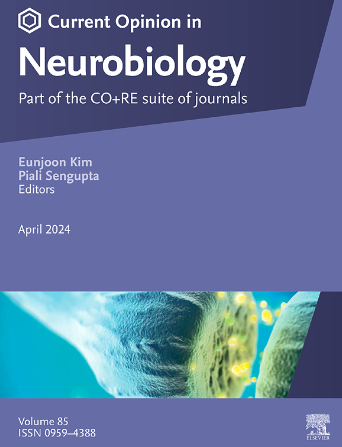Oxytocin and autism: Insights from clinical trials and animal models
IF 5.2
2区 医学
Q1 NEUROSCIENCES
引用次数: 0
Abstract
Autism spectrum disorder is a highly heritable and heterogeneous neurodevelopmental disorder, characterized by impaired social interactions and repetitive behaviors. Despite its complex etiology, increasing evidence has linked autism to the oxytocin system. The oxytocin peptide has long been known as the “social hormone,” and has been shown to increase attention to social cues, elevate salience of socially relevant stimuli, and increase learning and reward in social situations. Reduced oxytocin levels and mutations in the oxytocin system have been reported in autism patients, while exogenously delivered oxytocin has been shown to alleviate social interaction deficits in both patients and animal models. Here, we summarize the results of recent clinical trials using oxytocin nasal spray to treat individuals with autism, as well as studies of autism animal models with oxytocin system deficits, and the rescue of their social behavior deficits by oxytocin. Finally, we discuss factors influencing clinical outcomes and reflect on future directions.
催产素和自闭症:来自临床试验和动物模型的见解
自闭症谱系障碍是一种高度遗传性和异质性的神经发育障碍,其特征是社会互动受损和重复行为。尽管病因复杂,但越来越多的证据表明自闭症与催产素系统有关。长期以来,催产素肽一直被称为“社交激素”,并被证明可以增加对社交线索的关注,提高社交相关刺激的显著性,并增加社交情境中的学习和奖励。据报道,自闭症患者的催产素水平降低,催产素系统发生突变,而在患者和动物模型中,外源性催产素已被证明可以减轻社会互动缺陷。在此,我们总结了近年来使用催产素鼻腔喷雾剂治疗自闭症个体的临床试验结果,以及对催产素系统缺陷的自闭症动物模型的研究,以及催产素对其社会行为缺陷的拯救。最后,我们讨论了影响临床结果的因素,并反思了未来的发展方向。
本文章由计算机程序翻译,如有差异,请以英文原文为准。
求助全文
约1分钟内获得全文
求助全文
来源期刊

Current Opinion in Neurobiology
医学-神经科学
CiteScore
11.10
自引率
1.80%
发文量
130
审稿时长
4-8 weeks
期刊介绍:
Current Opinion in Neurobiology publishes short annotated reviews by leading experts on recent developments in the field of neurobiology. These experts write short reviews describing recent discoveries in this field (in the past 2-5 years), as well as highlighting select individual papers of particular significance.
The journal is thus an important resource allowing researchers and educators to quickly gain an overview and rich understanding of complex and current issues in the field of Neurobiology. The journal takes a unique and valuable approach in focusing each special issue around a topic of scientific and/or societal interest, and then bringing together leading international experts studying that topic, embracing diverse methodologies and perspectives.
Journal Content: The journal consists of 6 issues per year, covering 8 recurring topics every other year in the following categories:
-Neurobiology of Disease-
Neurobiology of Behavior-
Cellular Neuroscience-
Systems Neuroscience-
Developmental Neuroscience-
Neurobiology of Learning and Plasticity-
Molecular Neuroscience-
Computational Neuroscience
 求助内容:
求助内容: 应助结果提醒方式:
应助结果提醒方式:


